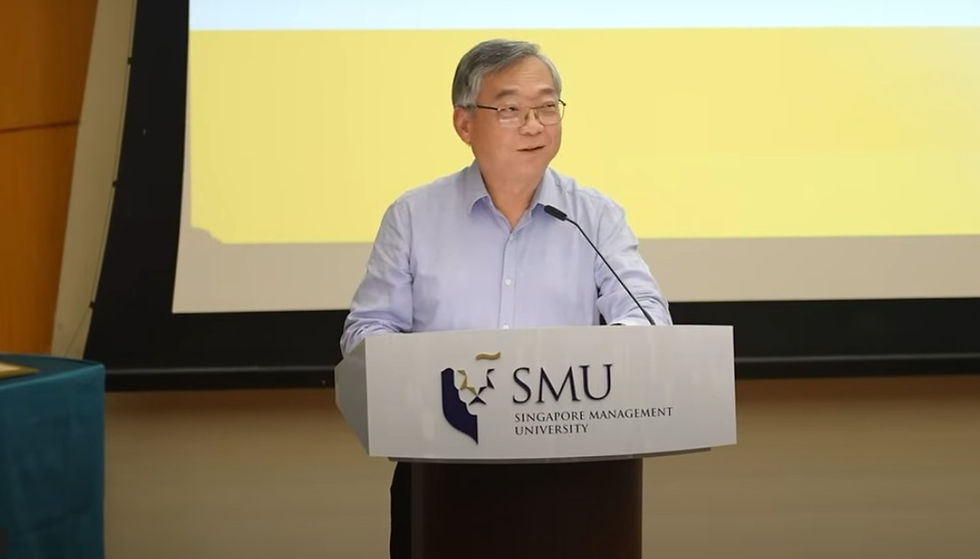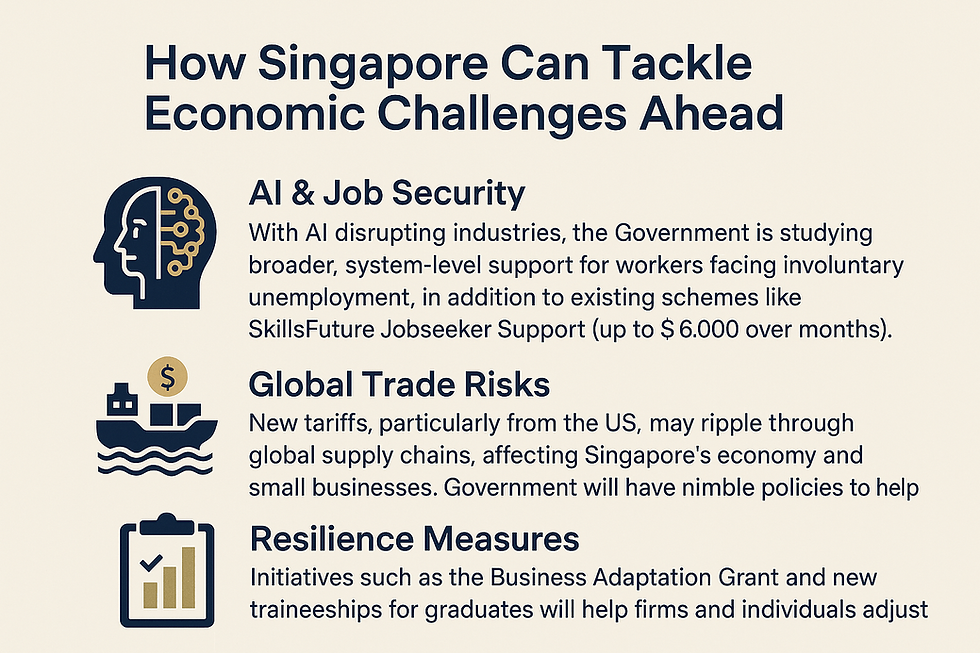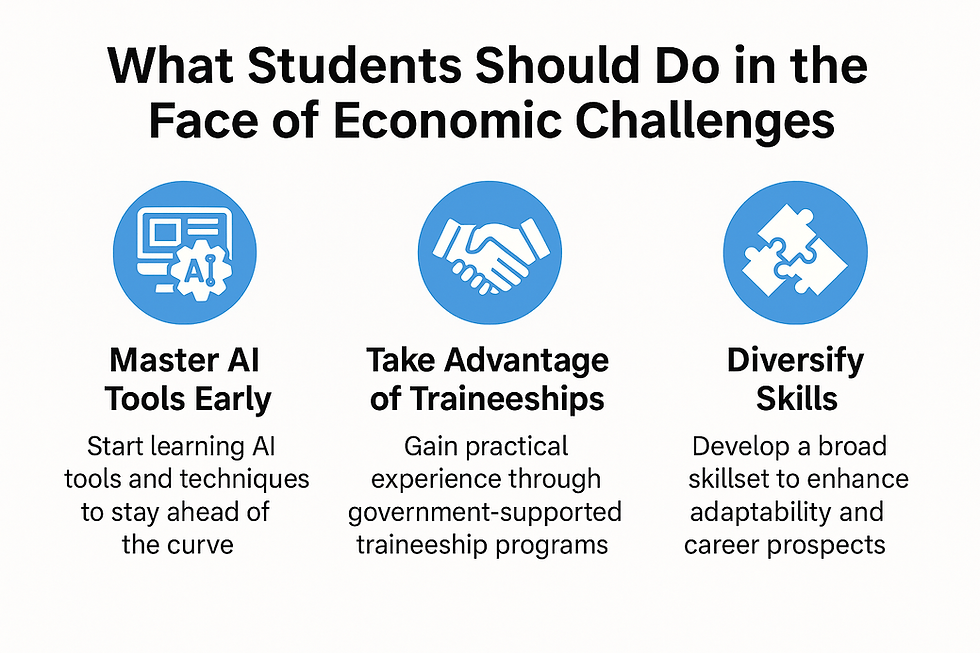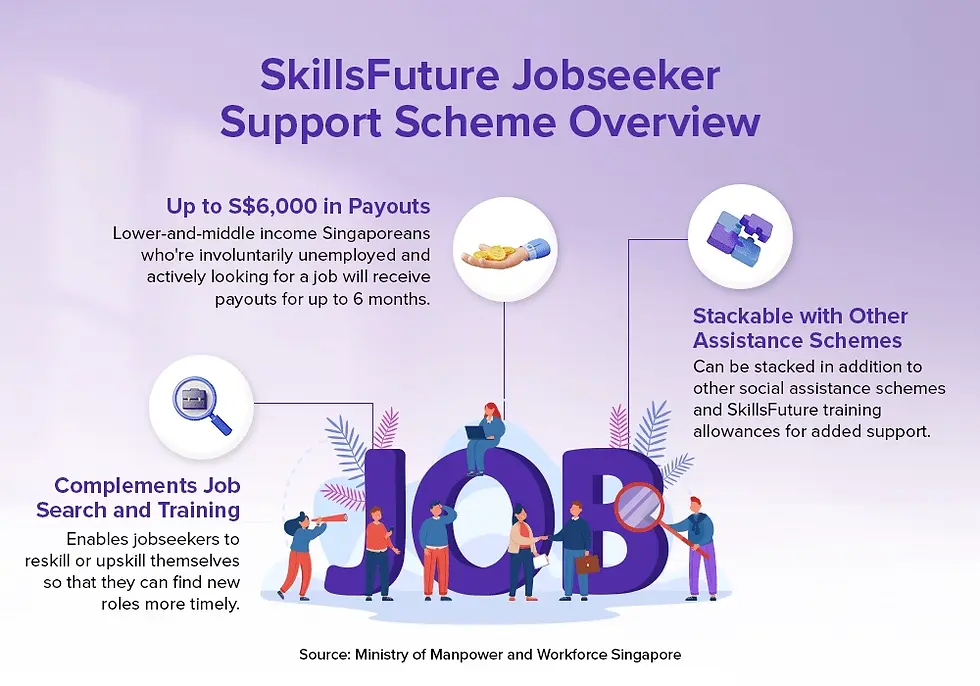DPM Gan Kim Yong Shares How Singapore Can Tackle Economic Challenges Ahead
- Singapore Best
- Aug 27, 2025
- 3 min read

Recently, Deputy Prime Minister (DPM) Gan Kim Yong delivered a speech at the MTI Economic Dialogue that carries important lessons for every Singaporean — whether you are a student, a working adult, or a small business owner. In today’s world of global uncertainties, trade tensions, and rapid advances in artificial intelligence (AI), the speech matters because it outlines not just the economic challenges ahead, but also the strategies Singapore is putting in place to protect and prepare its people. Understanding this speech gives us a clearer idea of how to safeguard our future, and what each of us can personally do to adapt and thrive.

How Singapore Can Tackle Economic Challenges Ahead?
DPM Gan Kim Yong highlighted three main areas in the speech:
AI & Job Security: With AI disrupting industries, the Government is studying broader, system-level support for workers facing involuntary unemployment, in addition to existing schemes like the SkillsFuture Jobseeker Support (up to $6,000 over six months).
Global Trade Risks: New tariffs, particularly from the US, may ripple through global supply chains, affecting Singapore’s economy and small businesses. Government will have nimble policies to help
Resilience Measures: Initiatives such as the Business Adaptation Grant and new traineeships for graduates will help firms and individuals adjust.

How Economic Challenges Ahead Impact on Students in Singapore
Real Future Impact: Students face an evolving job market where AI and global changes can make old career paths less secure. Opportunities remain, but competition will be tougher, and practical experience will be more valuable than ever. After they graduate, they will face economic challenges in a growing uncertain world.
DPM Gan Kim Yong's Advice: He urged students to embrace AI, use it to augment their skills, and take advantage of traineeships and government programmes to stay future-ready.
Writer Take: Beyond what was said, students should actively explore entrepreneurship and side projects — from digital freelancing to start-up internships — as ways to gain resilience. By diversifying skills and building networks early, students can prepare themselves to pivot in a fast-changing job market.
How Economic Challenges Ahead Impact on Working Adults in Singapore
Real Economic Impact: AI and automation will reshape industries. Some roles may be made redundant, while others evolve to demand new capabilities. The reality is that job disruption may no longer be a rare event but a recurring challenge.
DPM Gan Kim Yong's Advice: Working adults facing economic challenges should continuously upskill, leverage Skills Future credits, and be open to transitions with government safety nets cushioning the shift.
Writer Take: In addition to upskilling, adults should build “career resilience” by cultivating transferable skills such as leadership, problem-solving, and adaptability. Networking is also key — those with wider professional circles tend to find new opportunities faster during transitions.
How Economic Challenges Ahead Impact on Small Business Owners in Singapore
Real Economic Impact: SMEs may face higher costs from global trade tensions and need to adjust quickly to new market realities. Economic challenges ahead will weaken domestic demand if consumers grow cautious due to job insecurity.
DPM Gan Kim Yong's Advice: Tap on the upcoming Business Adaptation Grant to strengthen operations, adopt technology, and explore new ways of reaching customers.
Writer Take: Business owners should go beyond grants by actively embracing digitalisation and AI tools for marketing, operations, and customer service. Diversifying into regional markets, especially ASEAN, will also reduce dependence on any single market and build long-term resilience.
Conclusion: Economic Challenge Is Ahead But Manageable
DPM Gan Kim Yong’s message is clear: the world is getting choppier — with tariffs, tech shifts, and global uncertainty. But Singapore is not standing still. The Government will cushion workers at risk (including those disrupted by AI), help firms adapt, and prepare long-term strategies to keep the economy resilient.
For us as Singaporeans, the takeaway is equally clear: we cannot be passive observers. Students, working adults, and business owners alike must embrace change, master new skills, and seize opportunities so that growth remains inclusive and our workforce future-ready.


Comments